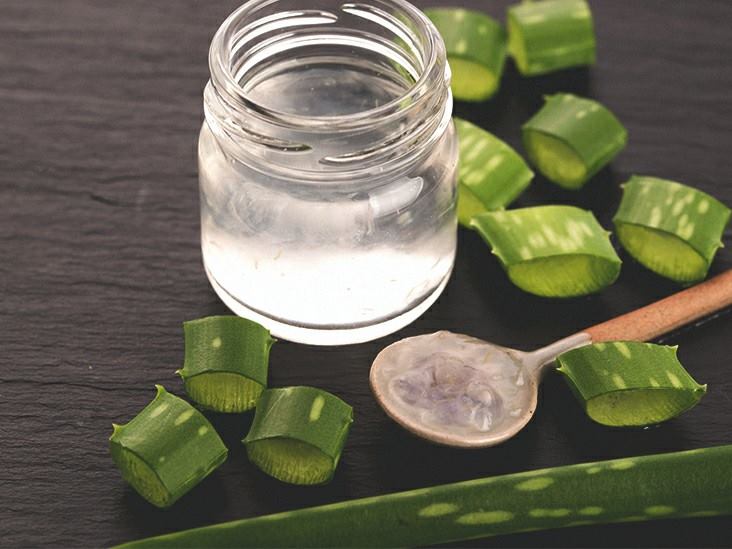
05 Mar Aloe Vera Gel: The Super Plant for Digestive Health
March is National Nutrition Month and the 2018 theme is “Go Further With Food.” This can mean many things but for me it means remembering the bountiful harvest nature gives us to maintain our health and well-being.
You can “go further with food” by remembering that plants were our original medicine, long before factories and chemists figured out how to mimic their properties. Unlike prescription medications that help control symptoms and cure diseases, plants help prevent them altogether.
One of my favorites? Aloe Vera. Many know aloe for its soothing properties on skin but did you know aloe is beneficial for your digestive health too?
Active components in the aloe plant include: vitamin A (beta-carotene), vitamins C and E (anti-oxidants) B12, folic acid, choline and loads of minerals that are essential for maintaining proper enzyme functions.
Perhaps the most significant components of aloe are it’s 12 anthraquinones, which are compounds traditionally known as laxatives that also act as analgesics, antibacterials and antivirals. Anthraquinones help cleanse the digestive tract by increasing intestinal water content and stimulating mucous secretion which helps get your bowels moving. Aloe Vera gel also inhibits inflammation which is very helpful for gastric reflux and the inflammation that continued acid backflow can cause in the cells that line the GI tract.
The collagen in aloe vera makes it a very powerful healer. Collagen is the building block for hair, nails, bones and skin cells, including those that line the inside of your GI tract.
Aloe is a potent liver cleanser. Researchers have found that aloe contains six antiseptic agents that all help inhibit fungi, bacteria and viruses: lupeol, salicylic acid, urea nitrogen, cinnamonic acid, phenols and sulfur. Controlling the replication of viruses is one key to disease prevention.
One caution: all aloe products are not created the same. Skin gels containing aloe are NOT for oral use. Always check product labels for purity and quality manufacturing and consult your own health provider to be sure it’s safe for you to use.
Want to know more on natural health and wellness?
1. Click HERE to reach out and schedule a Discovery Call with me. We’ll talk about how you can “Go Further With Food” and take simple steps to include more powerful foods like aloe in your wellness plan.
2. Sign up for my FREE newsletter HERE to get more tips and tools just like these delivered straight to your inbox!

No Comments